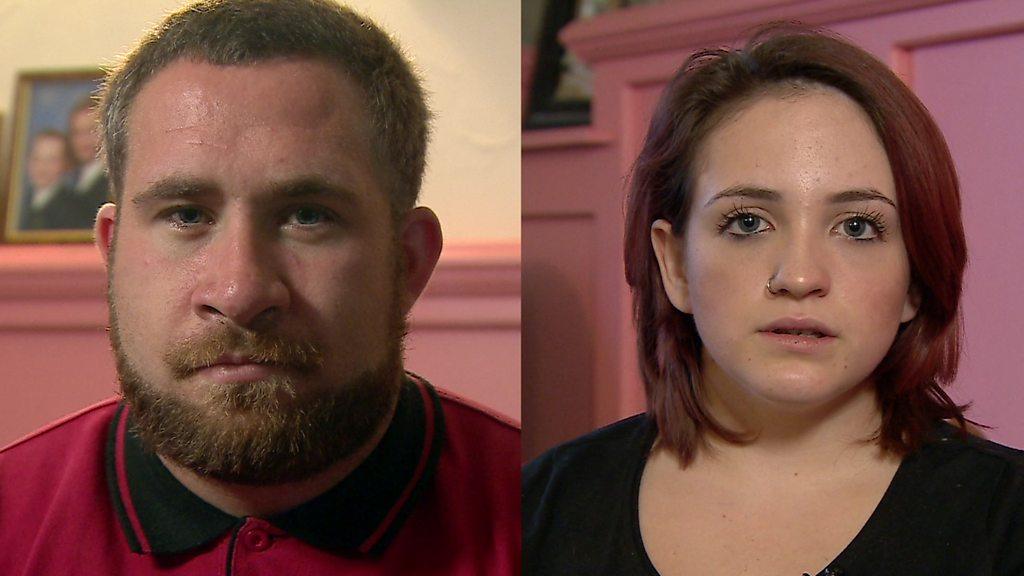Fetal alcohol spectrum disorder: The 'heartbreaking' reality
- Published
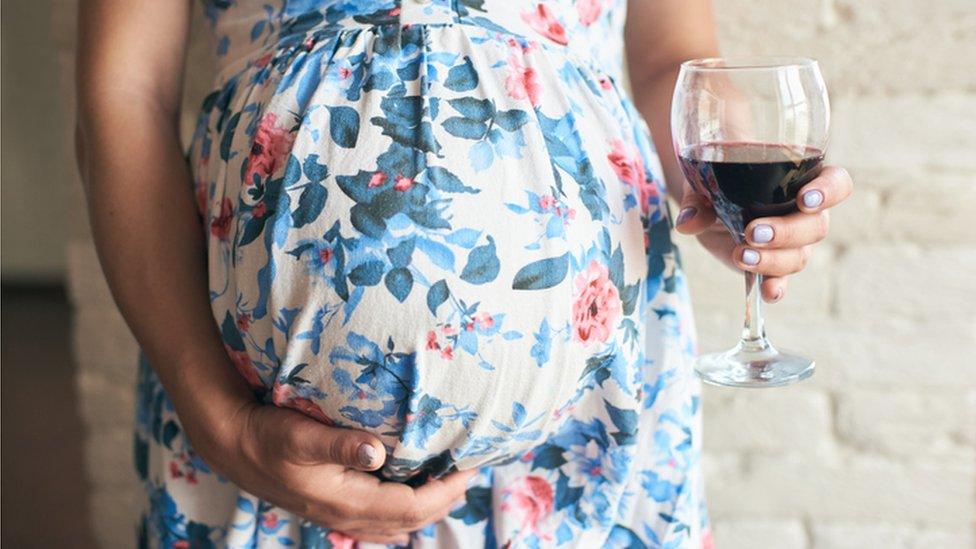
Eleven-year-old Reece and his brother Jordan, 10, do not like change.
Their mother, Alison, says every day is like groundhog day, with the McNamara family following a strict routine.
Everything from the way they are dressed in the morning to how they go to bed has to be the same.
The brothers, from Dromore, in County Down, are living with fetal alcohol spectrum disorder (FASD), meaning that exposure to alcohol in the womb has left them with life-long disabilities.
They were adopted by Alison and Brian McNamara as babies and both have developmental delays and thin top lips, which is common in people with FASD.
"Drinking alcohol while pregnant is like playing Russian roulette with your baby's life," Alison tells BBC News NI.
"I live the reality of it every day. We call it groundhog day."
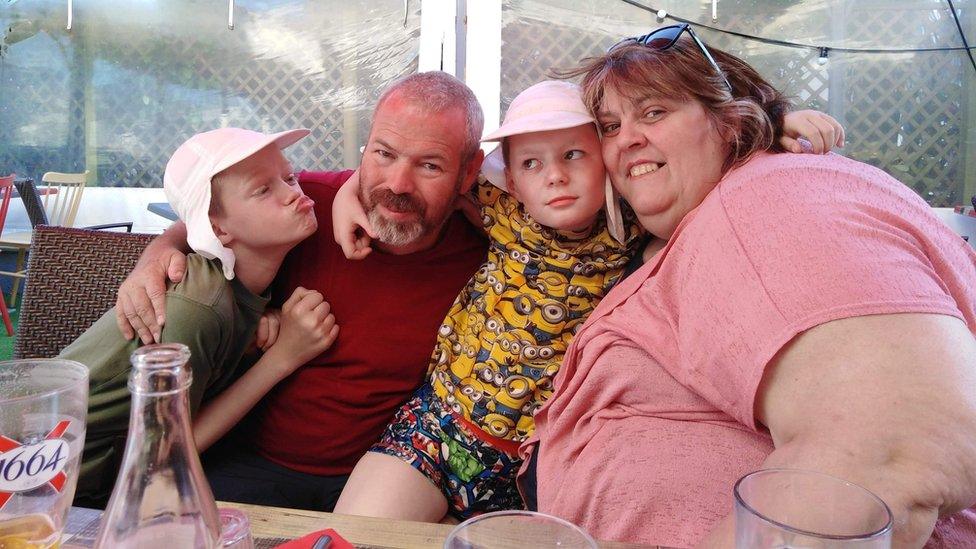
Alison and Brian McNamara adopted Reece (left) and Jordan (right) when they were babies
"Reece and Jordan are our whole worlds - they are amazing - but living with the effects that alcohol has had on them is a lot of work.
"They have no real working memory so they struggle with the here and now.
"They are very forgetful and can't control their behaviour so they act on impulse."

What are the risks of drinking alcohol while pregnant?
An estimated 60% of women in Ireland and 41% in the UK drank alcohol during pregnancy, a study funded by the Canadian Centre for Addiction and Mental Health, external found in 2017.
The Department of Health says the risk of harm to the baby is "likely to be low if you have drunk only small amounts of alcohol before you knew you were pregnant or during pregnancy".
According to the NHS, external, a baby exposed to alcohol in the womb can be affected in a number of ways, including suffering from poor growth, having distinctive facial features, learning difficulties and behavioural problems.
It can also result in the loss of a pregnancy.
That can occur because alcohol in the mother's blood passes to her baby through the placenta and a baby cannot process alcohol in the same way as its mother can.
This means it can damage cells in the baby's brain, spinal cord and other parts of the body.
The NHS states that fetal alcohol syndrome is "completely avoidable if you don't drink alcohol while you're pregnant" and warns there is no proven "safe" level of alcohol consumption during pregnancy.
"Not drinking at all is the safest approach," it adds.

Alison and Brian set up the group FASD NI to support other families living with the effects of alcohol.
It was through FASD NI that the family met five-year-old AJ, who was diagnosed with FASD two-and-a-half years ago.
His adoptive mother Heather, from Newtownabbey in County Antrim, said it "settled" her to meet other children with the condition for the first time.
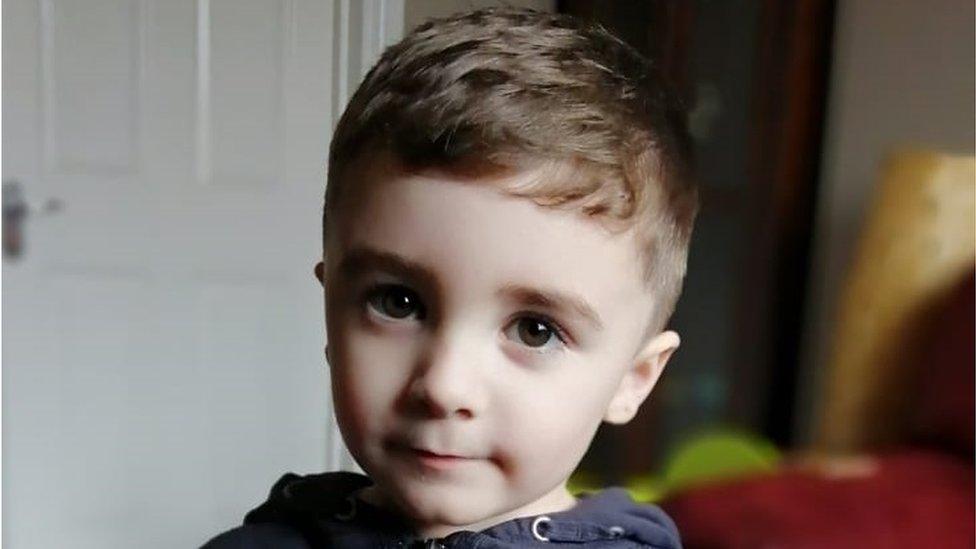
AJ has developmental delays
"AJ is a brilliant wee boy and that's what makes it so heartbreaking," she tells BBC News NI.
"He is very intelligent and so loving so he wants to hug everyone but he struggles to communicate and has a fear about things he can't control. He gets so overwhelmed.
"He doesn't play with toys and wants to play with others but he doesn't know how to so he ends up sobbing.
"It's really hard work but it's not the child's fault."
'Every day can be a struggle'
Sue and David McCartney, from Ballinderry in County Antrim, have fostered for more than 30 years.
Their adopted son Jonathan, who is 15, has been in their lives since he was two months old.
"We had fostered a number of children who had been affected by alcohol and when Jonathan came he had all the facial features and symptoms of it," says Sue.
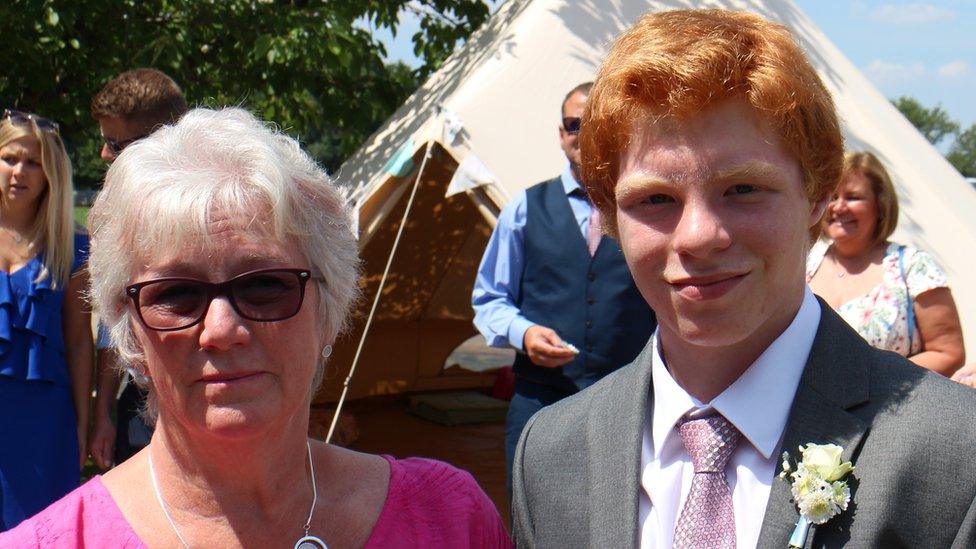
Sue McCartney says Jonathan struggles to remember things
Jonathan was diagnosed at 18 months and his mother says the condition "has affected him massively".
"Sadly, he knows and understands why he has so many difficulties, which has made him very angry," she says.
"From an early age he has faced challenges. He didn't speak until he was older. His motor skills were always good but learning has been difficult."
Where he may struggle in some areas, Jonathan has thrived in others and is a British disability champion in gymnastics and judo.
"He is a very talented child but every day can be a struggle," says Sue.
"He wouldn't know what day it is sometimes and can be told something and forget it half an hour later.
"I am not against alcohol by any means but people need to be aware of what they could do to their children."
If you or someone you know is struggling with issues raised by this story, find support through BBC Action Line.
- Published30 November 2018
